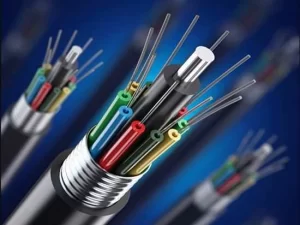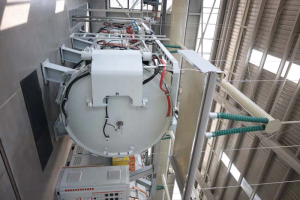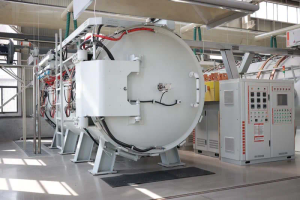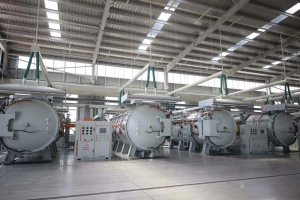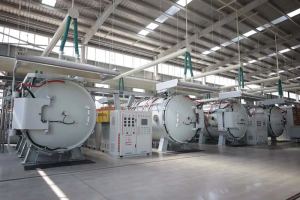The jungle law of the semiconductor industry
Regarding the restrictions of the Chinese semiconductor industry in other countries, the statement of the China Semiconductor Industry Association has recently triggered public discussion. One of them has a lot of approval: the world has followed the law of the jungle, and you don’t have to expect who is kind.
When discussing subsidies to subsidize domestic semiconductor companies, the United States always names the name “solving the shortage of chips”, but the purpose of the United States is essentially the dependence on Asia, especially China and Taiwan. The cost of building a “wafer factory” in the United States is 40 % to 70 % higher than overseas. The United States wants to reverse the decline in the 40 years of semiconductor production. Subsidies are the only answer. US media said it was time to realize that the United States is no longer a “seller” that can afford high corporate taxes, strict supervision, and no investment incentives. The United States is now a desperate buyer. If you want to build a wafer factory in the United States, the US government will have to help pay.
The “Chip Act”, which was finally passed, did not cause enthusiasm of the US semiconductor company at the beginning. One of the reasons is that the “Chip Act” prohibits the company repurchase stocks when receiving subsidies. If a chip company gets $ 3 billion from the Ministry of Commerce to help the cost of discharging the wafer factory, then it will need each penny to pay the higher operation and capital expenditure it will face in the United States, and shareholders will have nothing. This effect allows the US government to “add” other methods to develop its national semiconductor, so the United States has begun to restrict other countries to restrict China semiconductor exports.
This operation logic is not difficult to understand: the difficulty of developing its own industry is too high to “slow down” the speed of others. The United States first formed a Chip4 Alliance, and in 2023, it was restricted to the export of semiconductor equipment to China with Japan and the Netherlands in 2023. Although countries seem to meet the requirements of the United States, who does the abacus be?
01
The “Yang Fengyin Violation” of the Dutch, Japan and South Korea, which is difficult
“Maintenance of Multidirection” Dutch outlet optical carvings restricted
The Dutch semiconductor manufacturer manufacturer ASML has 100 % of the market share in the field of EUV (extremely UV) optical engine. In January 2023, ASML said that the rules for export control of China were “finalized.” As of press time, there is no official explanation or refutation to the so -called agreement details.
This has triggered the discussion of the semiconductor industry in China. After all, if the ASML photoresmal machine cannot be exported, it will greatly hit the Chinese semiconductor manufacturing session, especially the chase of Chinese semiconductors in advanced process links. But the operation of the Netherlands seemed to show that there is still room for cooperation in China.
On February 18, Wang Yi, a member of the Political Bureau of the Central Committee of the Communist Party of China and the director of the Office of the Central Foreign Affairs Working Committee, met with the Dutch Deputy Prime Minister and Foreign Minister Hokstera during the attendance of the Munich Security Conference. Hakistra said that the world is interdependent, and all parties have the responsibility to firmly maintain multilateralism and support multilateral mechanisms and international rules. I am glad to see China’s victory over the epidemic, the economy has recovered strongly, and quickly restores foreign exchanges and cooperation. Looking forward to close exchanges with China and expanding cooperation. The Netherlands is willing to continue to be China’s reliable and stable partners.
Regarding whether the Netherlands will choose to “follow” the United States wholeheartedly, Dutch experts say “the Netherlands will not follow the United States blindly.” In fact, Europeans do not want to see the United States isolated China. Taking the “Angle Act of Inflation” issued by the United States as an example, according to the bill, the US government can provide high subsidies for local industries. American products will gain a competitive advantage, and other countries will have no place for the lack of a fair competitive environment. In fact, the European Union has recently announced potential countermeasures against the Angle Bound Act.
Japan should maintain a cooperative relationship with China
In addition to the Netherlands, Japan, which has a large semiconductor manufacturing equipment factory, has also been attracted by the United States. The US Biden Government strongly demands that Japanese cooperation has strengthened control, so the report said that the Japanese government will start controlling the exports of cutting -edge semiconductors. Japan’s advantages are mainly in the field of semiconductor manufacturing equipment, wafer manufacturing and materials. According to the prediction of the US Semiconductor Industry Association, the global market share of Japanese semiconductor manufacturing equipment in 2021 can reach 27 %, and the market share of wafer manufacturing and materials is about 16 %. And 14 %. Against the background of the United States and China for technology hegemony, as the manufacturing industry returns to China, the workers of the manufacturing equipment and material industries will increase their concerns to overseas. Japanese media are concerned that most Japanese semiconductor companies have been negatively affected by the United States’ restrictions on the export of China. The proportion of operating income from China from China may fall to 22 %, a year -on -year decrease of about 5 percentage points.
There is a constant relationship between China and Japan’s economy. In the gap between the United States and China, Japan must be balanced. In order to stimulate China, Japan did not name China in control measures. Japanese industry insiders analyzed that this is because “as long as it is caught, it is difficult to deny that it will be complained that the world trade organization or other industries will suffer.” At present, the “Foreign Exchange Law” has required some manufacturing devices to apply for permits, and maybe it will expand the restricted object in the future. It is expected that Japan’s content is expected to be milder.
Japanese Prime Minister Kishida Nobita called on China to establish a “constructive stability relationship”. “For Japan, the United States is the most important ally, but I think that Japan cannot be consistent with the US policy in some ways. Japan cannot split China’s largest trading partner.”
South Korea requested the United States for pardon and wanted to sell China
South Korean media published an article saying that Yu Bo, the US semiconductor restriction in China, is moving to the Korean equipment industry. The core semiconductor equipment made in the United States, Japan, the Netherlands and other countries is difficult to enter China, so the export road of Korean equipment used together is also blocked.
In terms of equipment, Korean companies provide China that is not necessary for process equipment, but more of the systems of auxiliary process equipment, such as adding additional functions in the steaming process or performing main equipment thermal control equipment, measurement, inspection, and cleaning equipment in equipment, measurement, inspection, and cleaning equipment. wait. In addition, South Korea sells many seal testing equipment to China. With the operation of the Chinese chip factory, the sales of Korean equipment companies will also be affected.
Some Korean semiconductor equipment companies said: “Although some people predict that due to the restrictions of the United States, the vacancy of global equipment companies will be filled with Korean companies, but as the Chinese market itself shrinks, it will be lost.” If the sales of semiconductor equipment in South Korea decreased, this is reduced, this is reduced, this is reduced, this is reduced, this is reduced, this is reduced, this is reduced, this is reduced, this is reduced, this is reduced, this is reduced, this is reduced, this is reduced, this is reduced, this is reduced, this is reduced, this is reduced, this is reduced, this is the decrease in the sales of semiconductor equipment, this is reduced, this is reduced. It will also affect the upstream of semiconductor manufacturing equipment, such as semiconductor materials, semiconductor equipment parts and other fields. Because Korean semiconductor equipment companies are mainly purchased in Korea’s domestic raw materials and components. Representatives of South Korean semiconductor consumables said: “The US semiconductor restrictions on the restrictions of the remaining remains have been felt since the second half of last year. South Korean SMEs will also be difficult to avoid affected.”
For Korean semiconductor companies, not only small and medium -sized companies, even semiconductor giants such as Samsung Electronics and SK Hynix cannot be separated from the Chinese market. In February, the Korean media said that the Korean enterprise executives went to the United States, hoping to win the exemption of the “Chip Act” and continue to ship in China. South Korean media also said that the South Korean government expressed support for the emergency dispatch of senior executives in South Korea to send executives to the United States.
It is not difficult to see that even if the three countries agree with some of the requirements of the United States, they cannot draw the boundaries with the Chinese market.
Semiconductor jungle is already “all soldiers and trees”
In fact, in the moment when various countries have increased their development to semiconductors, countries are in semiconductor anxiety.
Brexit, Brexit needs to create a fair competitive environment with participants in the United States, the European Union, and China, which is not small for British companies. For several months, British chip manufacturers have been calling on the British government to take action. British chip companies include Pragmatic Semiconductor, IQE and Paragraf, which expressed disappointment about the British government’s failure to propose to fund the semiconductor industry in the region. British chip manufacturers threatened that if the British government does not take action and released the long -awaited semiconductor strategy, they will transfer their business to the United States or Europe.
Some countries want to maintain neutrality and develop silently; there are also countries hoping to hold the “thighs” in the United States.
The Indian Electronics and Semiconductor Association (IESA) and the US Semiconductor Association announced the plans to set up a private sector working group to strengthen cooperation between the two countries in the global semiconductor ecosystem. The specific goals of the working group include: “assessment of preparations” about the Indian semiconductor ecosystem; those related to the industry, government and academic interests to determine the recent industry opportunities and promote the long -term strategic development of complementary semiconductor ecosystems; improve India to India Suggestions and challenges in the global semiconductor value chain (including chip manufacturing) are made; determine and promote labor development and exchange opportunities to benefit the two countries.
John Neuffer, president and CEO of SIA, said, “We are glad to launch this new plan with our peers in India. India is already the main hub of semiconductor research, chip design and equipment engineering, but its future potential is greater. The working group will help determine the practical way to release this potential by strengthening the cooperation between the United States and India in the global chip ecosystem. ”
On the surface, the United States has given India’s admission voucher. However, a study published in the magazine published in “Sustainable Development” in 2021 shows that most of the waste from the electronics industry from developed countries is accumulating in India. Their research quoted data from the United Nations Environmental Planning Agency (UNEP) that only 10 % of the e -waste generated in the world today have been recovered in developed countries, and the remaining 90 % have been sent to global developing countries. Indian media believes that in the end, India may only be a “waste dumping field” used by developed countries to transfer electronic pollution.
In the jungle of the semiconductor industry, it can only fight.
02
Chinese semiconductor comes out of the “Dark Forest”
“Silicon Iron curtain” is leading to crisis, and China is the one that is most directly affected. When the United States issued the “Chip and Science Act”, the use of national power to suppress Chinese enterprises, and free trade no longer exists.
What about Chinese semiconductor? The development of basic science may be the fundamental method to get rid of this situation.
Recently, an article from the Chinese Academy of Sciences pointed out that the basic research of semiconductor was lacking, and we entered the “Dark Forest.” Even if a large number of investment replaces by large investment, it can only achieve the gap between internal circulation or closer to the United States. This article recommends that strengthening the basic capacity of semiconductor basic capabilities, stabilizing a group of basic research teams, and conducting theoretical innovation at the source and underlying layers of semiconductor technology. An effective strategy of the “stuck neck” problem.
The article published by the Chinese Academy of Sciences mentioned that the basic research and development of the basic research and development of the basic research and development of the basic research and development of my country has long been less than 5 % of the United States. This comparison reminds that the Chinese semiconductor industry is time to cross the gorgeous listed companies, the amount of financing, and face the essential gap. To achieve high -level technology self -reliance, basic research must be strengthened. Strengthening basic research means that it is necessary to improve the scientific research system and high -level basic research talent training platform, which may be a new starting point.
http://oaicon.com/index.php/2023/02/27/the-jungle-law-of-the-semiconductor-industry/
The development of semiconductors is a long difficulty. The darkness before dawn is the most difficult, but the heavens will be bright.

